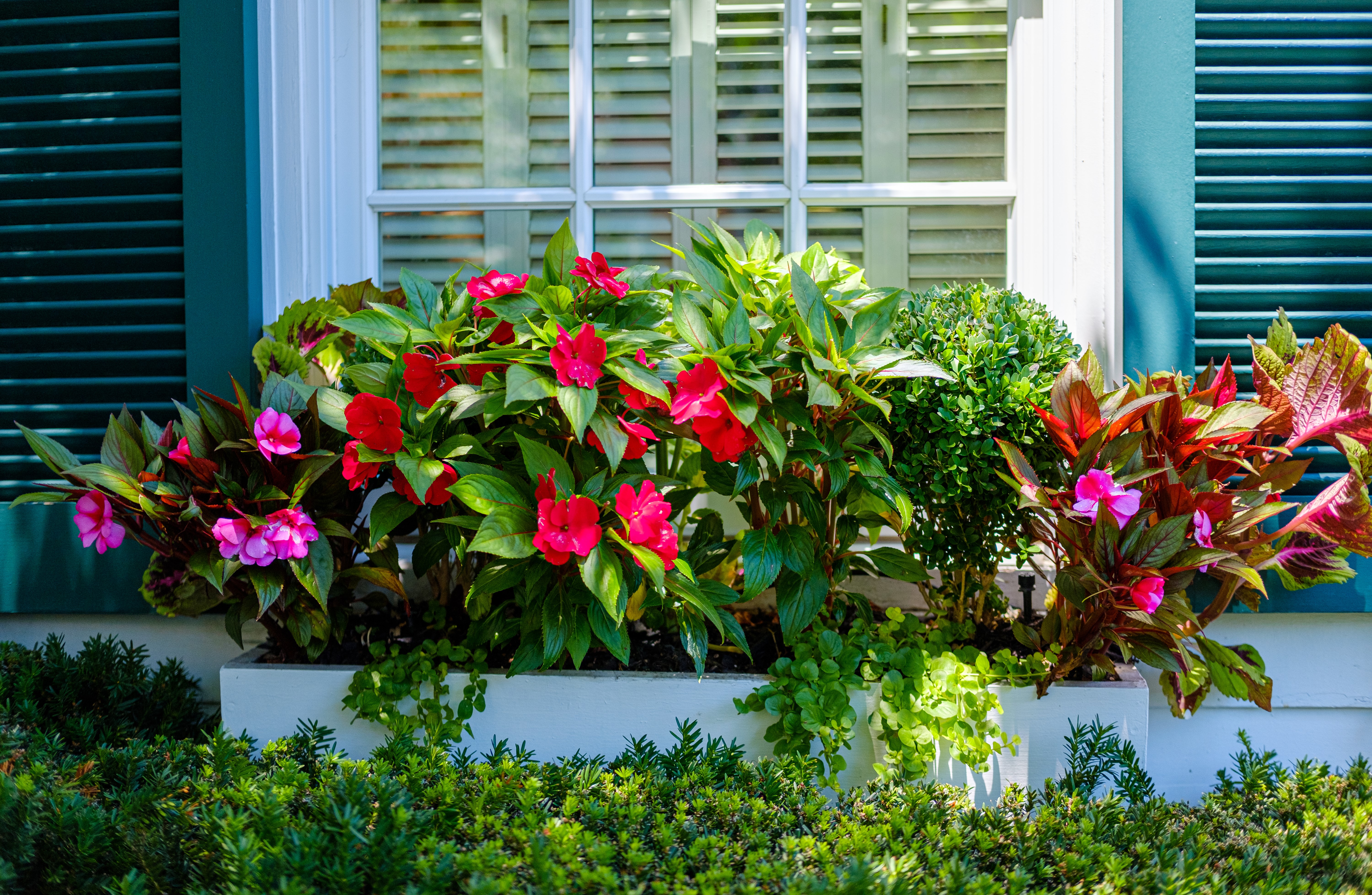
Flowers in window boxes adds a certain pizzazz to the exterior of a home. It brings life into areas that are often forgotten about, whether it's your plain and empty window sill or the balcony you've left behind — blooms have a way of capturing peace through colors and scent.
But remember, not all flowers are meant to be confined in small spaces and it's important to know which ones won't do so well in them. 'When selecting flowers for a window box, it's best to avoid certain types that may not thrive well in such a constrained space,' plant expert, and founder of The Inspired Garden, Laura Janney tells us.
With that being said, here are 5 picks that might not be the best flowers for window boxes, and where they're better suited to, instead.
Which flowers don't grow well in window boxes?
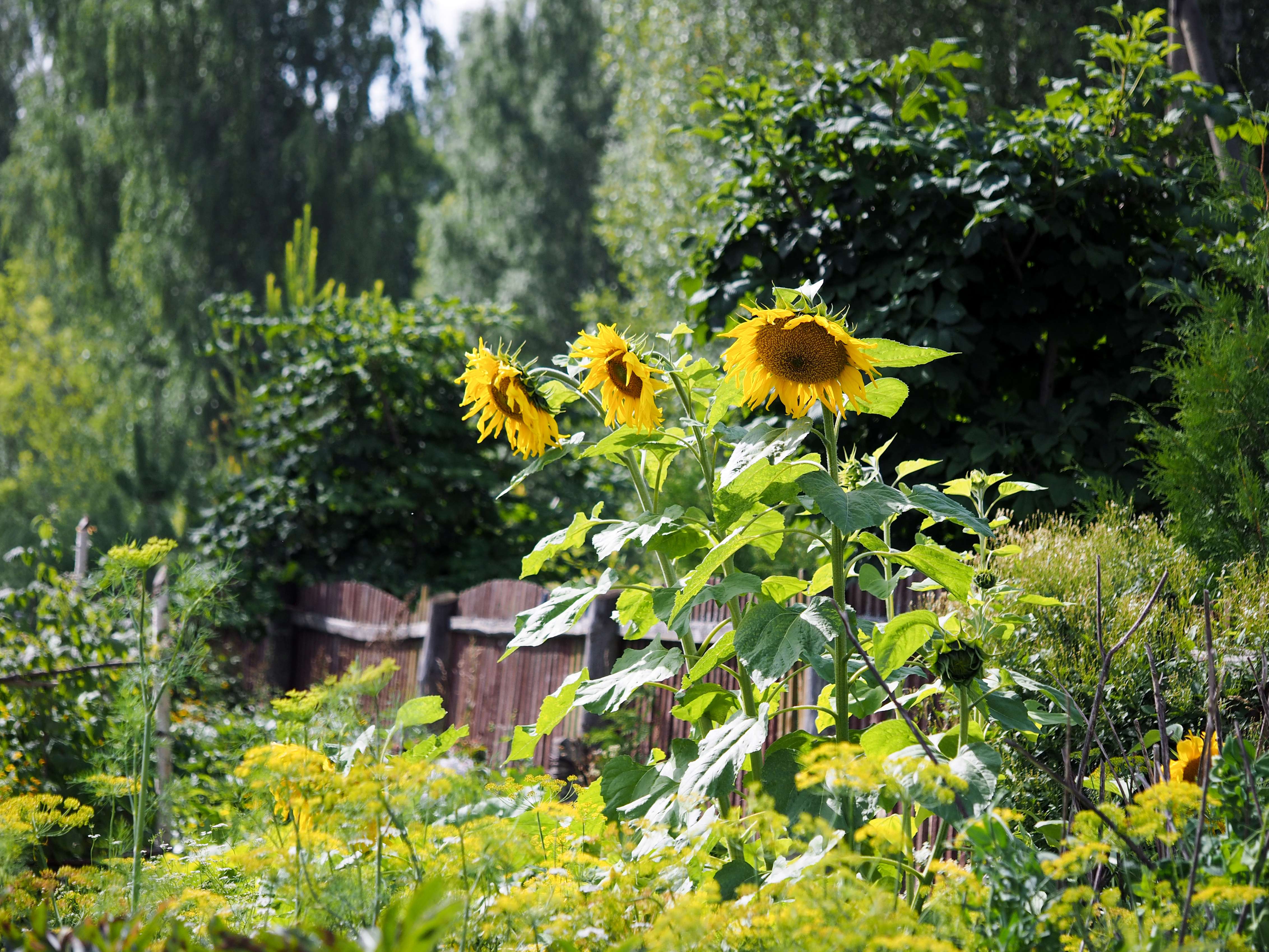
Everything has a place in this world and that includes flowers. If you want the best out of your blooms, be sure to take care of them, nurture them and understand them. In order to understand your blooms, you need to know which plant is suited in certain areas.
When it comes to flowers in window boxes, gardening expert Laura Janney says there are a few categories of flowers to steer clear of — these are:
Flowers with large rootballs: Laura tells us that these 'plants can quickly outgrow the limited space of a window box, leading to overcrowding and poor health. Examples include cosmos, sunflowers, cannas, and larger zinnias'.
Tall flowers: 'Plants that grow too tall can look disproportionate and awkward in a window box setting. They also tend to become leggy. Some examples are tall varieties of zinnias, sunflowers, cosmos, hollyhocks, and snapdragons,' she notes.
Delicate flowers that are not drought or heat tolerant: 'Window boxes often don't receive as much rainwater as ground plants and can dry out quickly, especially in warmer weather. Delicate plants such as lobelia, caladiums, and some varieties of snapdragons might struggle without consistent watering'.
Non-prolific bloomers: Laura says flowers that produce 'showy blooms sporadically or infrequently' can leave your window box looking quite bare. This includes dahlias, gerbera daisies, and some zinnias.
Flowers that require staking: 'These can be impractical in a window box as they need support to grow properly. Plants like morning glory, sweet peas, and mandevilla also risk touching the home's siding, potentially causing damage or encouraging pests,' Laura continues.
The gardening expert says it's important to choose plants that are well-suited to 'unique environment of a window box' as this will ensure better growth for your plants as well as a more aesthetically pleasing display.
The selection below are just 5 of the flowers experts say to avoid for window boxes, but many more will fit the characteristics listed above.
1. Vinca
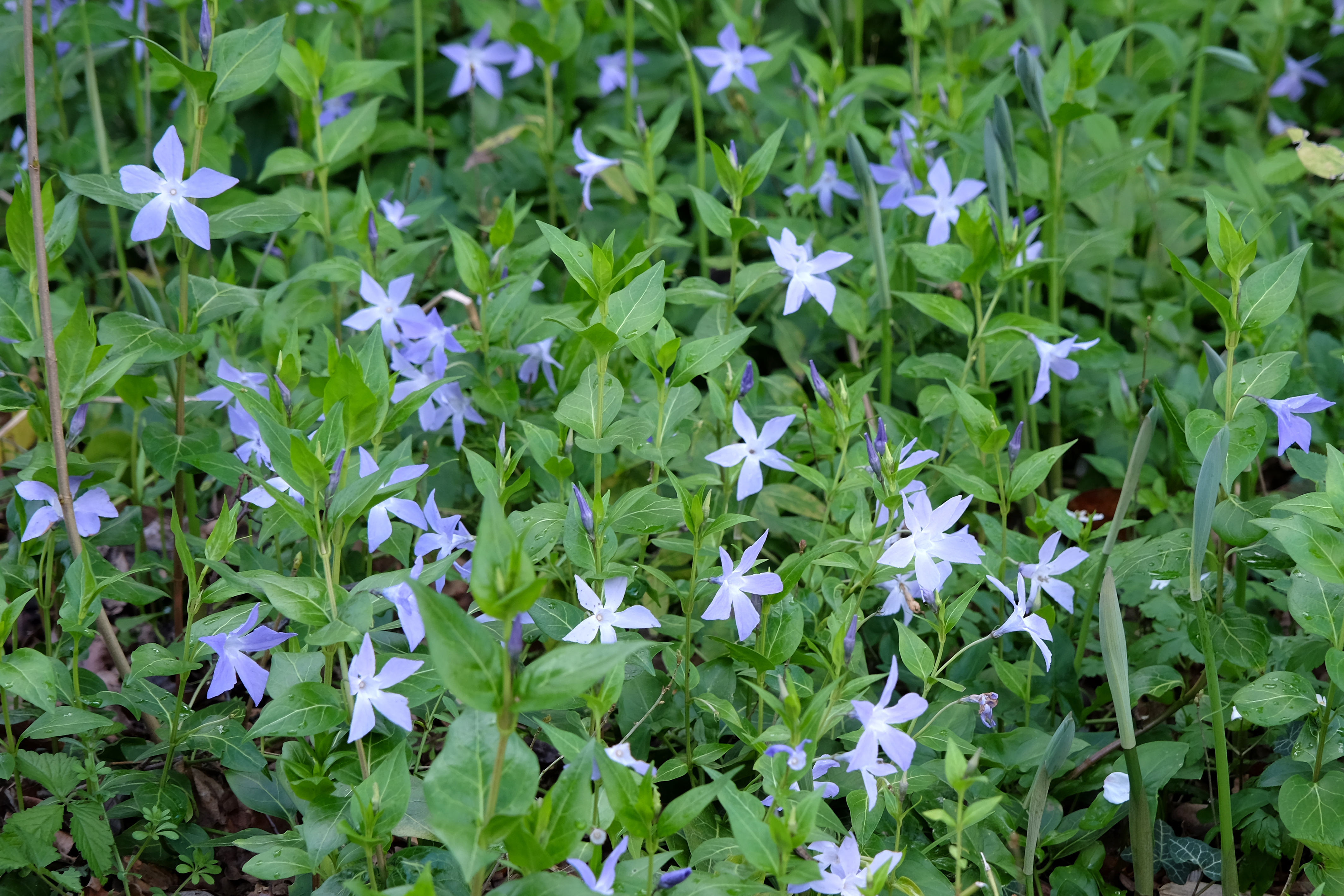
Vinca, also known by the name Periwinkle, are bright and beautiful but these blooms are not the best choice for container gardening and the expert says these should not be added into window boxes.
Laura tells us these flowers are 'ideally suited for ground planting in full sun, vinca is heat-tolerant and fast-growing, making it perfect for covering large, sunny areas quickly. Its prolific blooming and minimal water needs are best utilized in garden beds where its spread can be more effectively managed and appreciated'.
Hardiness zone: Zones 7-9 USDA
Sunlight: Full sun for 8+ hours
Soil type: Loamy, sandy soil
2. Marigolds
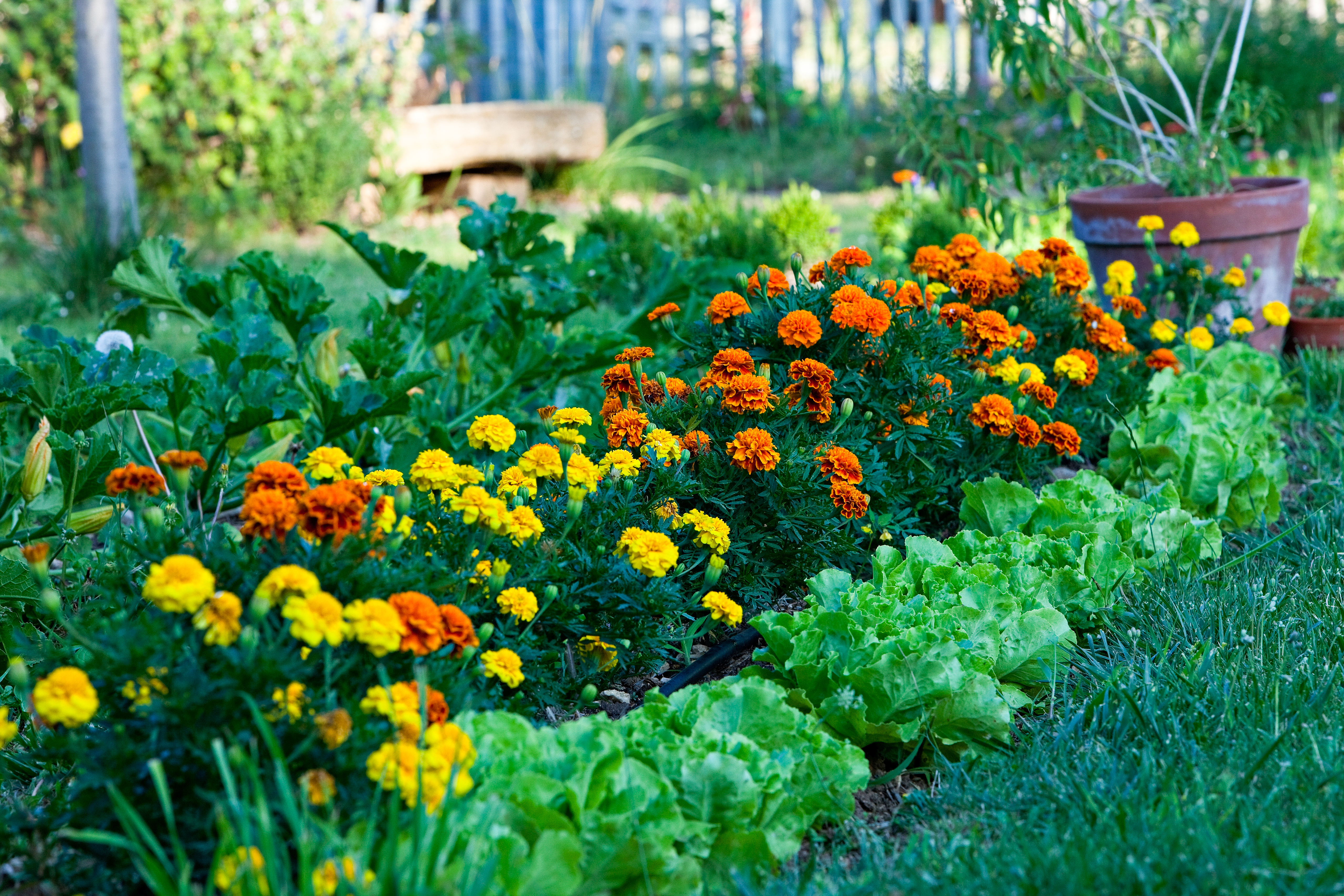
Known for their bright orange and gold hues, Marigolds are fast-growing flower seeds that are probably best kept outside of a window box.
'These plants are excellent for vegetable gardens or borders in full sun. Marigolds can handle both heat and very cold temperatures, and they are known for repelling garden pests like mosquitos,' say Laura. She continues: 'Their compact growth and long blooming period help enhance the vegetable garden’s productivity and aesthetic'.
Hardiness zone: 2-11
Sunlight: 6-8 hours of direct sun
Soil type: Well-drained, loamy soil
3. Impatiens
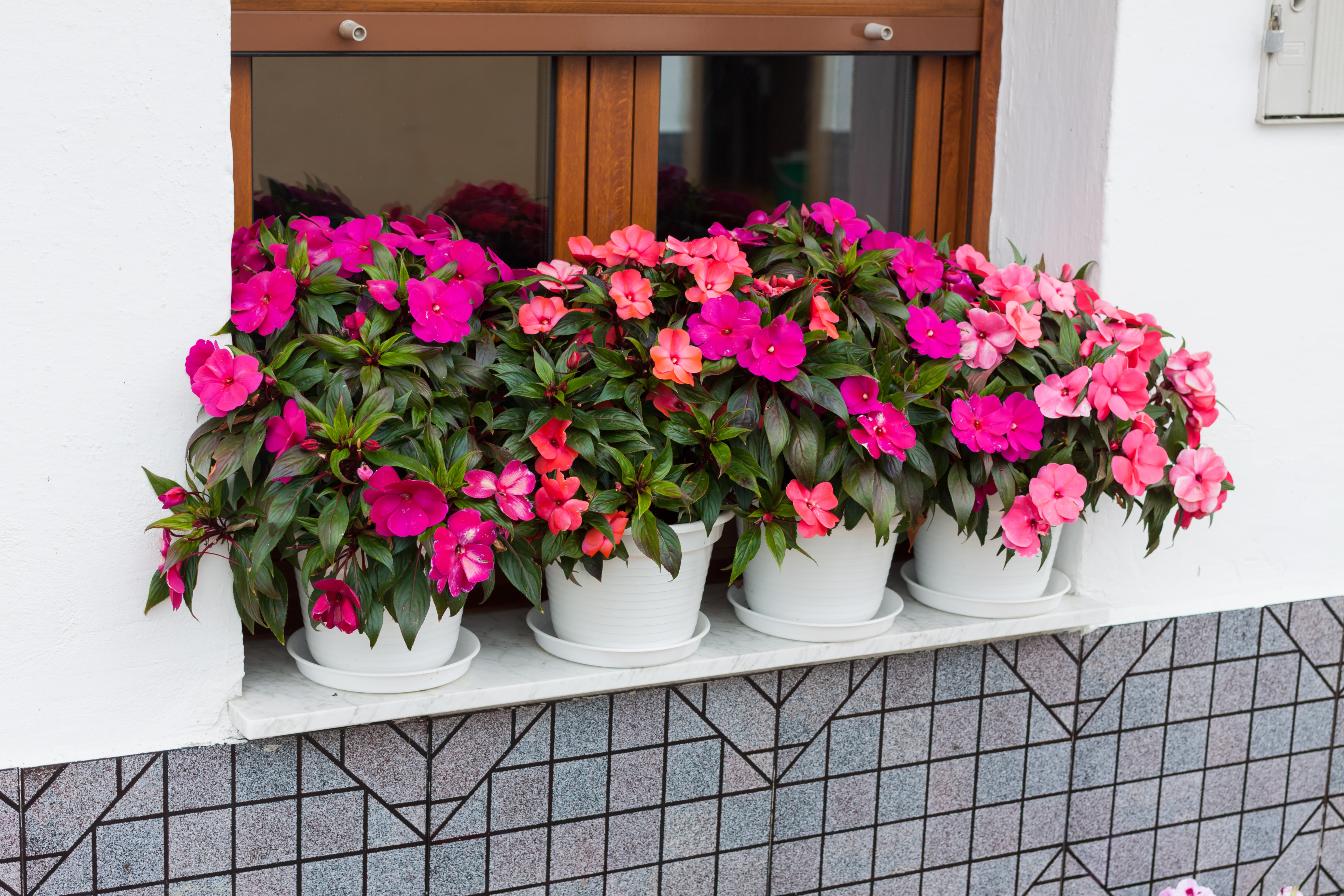
Impatiens are best planted in the ground under shaded conditions, according to Laura. She says these are also ideal for underplanting taller shrubs or trees. This is also a great flower for fairly low maintenance gardens.
However, they are not unfamiliar to window boxes. Laura notes: 'While they can thrive in window boxes, garden beds allow them more space to spread, creating a lush, colorful ground cover in shaded parts of the garden'.
Hardiness zone: 7–13
Sunlight: Bright sunlight up to 8 hours a day
Soil type: Well-draining, Loamy soil
4. Compact Zinnias

Compact Zinnias or Thumbelina zinnias are small yet delicate blooms that can grow and spread to about 6 inches. These bright flowers are also notable flowers you can plant into borders.
They're cute and quite precious, but not ideal window box ideas. Laura says these blossoms are 'fantastic for rock gardens or sunny borders. Their ability to handle heat and drought, along with their cheerful and vibrant blooms, make them excellent for enhancing dry, challenging landscapes where other plants might struggle'.
Hardiness zone: 2-11
Sunlight: at least 6 hours of sun
Soil type: Fertile, well-drained
5. Geraniums
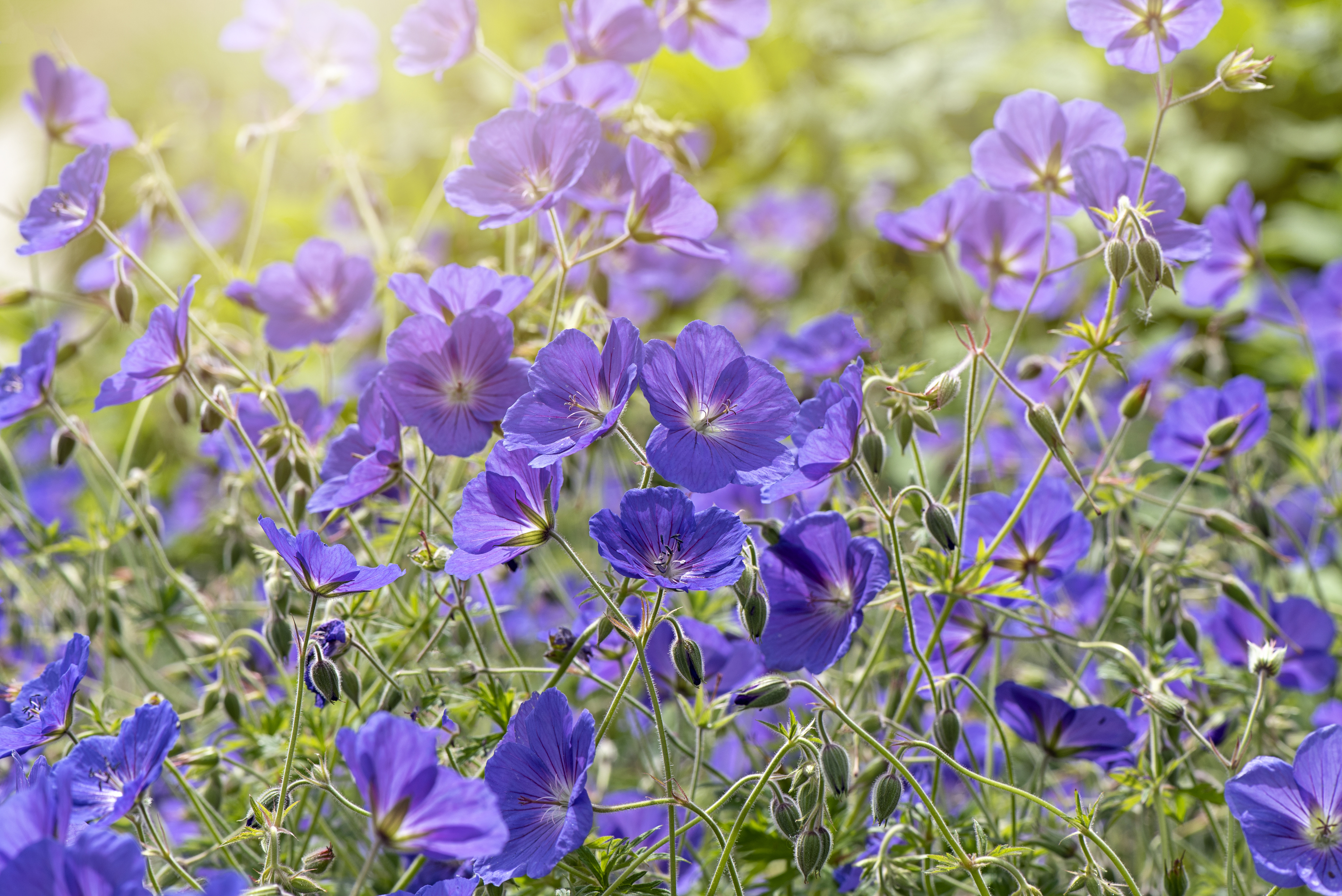
Geraniums are versatile plants that also grows well indoors.
Laura says: 'While they perform well in containers, planting geraniums in garden beds allows them to spread out and fully develop, creating a dense coverage of scent and color. They are particularly effective in sunny garden spots where their robust blooms can last all summer'.
Unless your window sill is facing the sun all the time, it's best to keep these blooms away from window boxes — they're among the best flowers for pots in full sun.
Hardiness zone: 3-9
Sunlight: 4-6 hours of full sun
Soil type: Fertile, well-drained
What mistakes do people make when it comes to planting in window boxes?
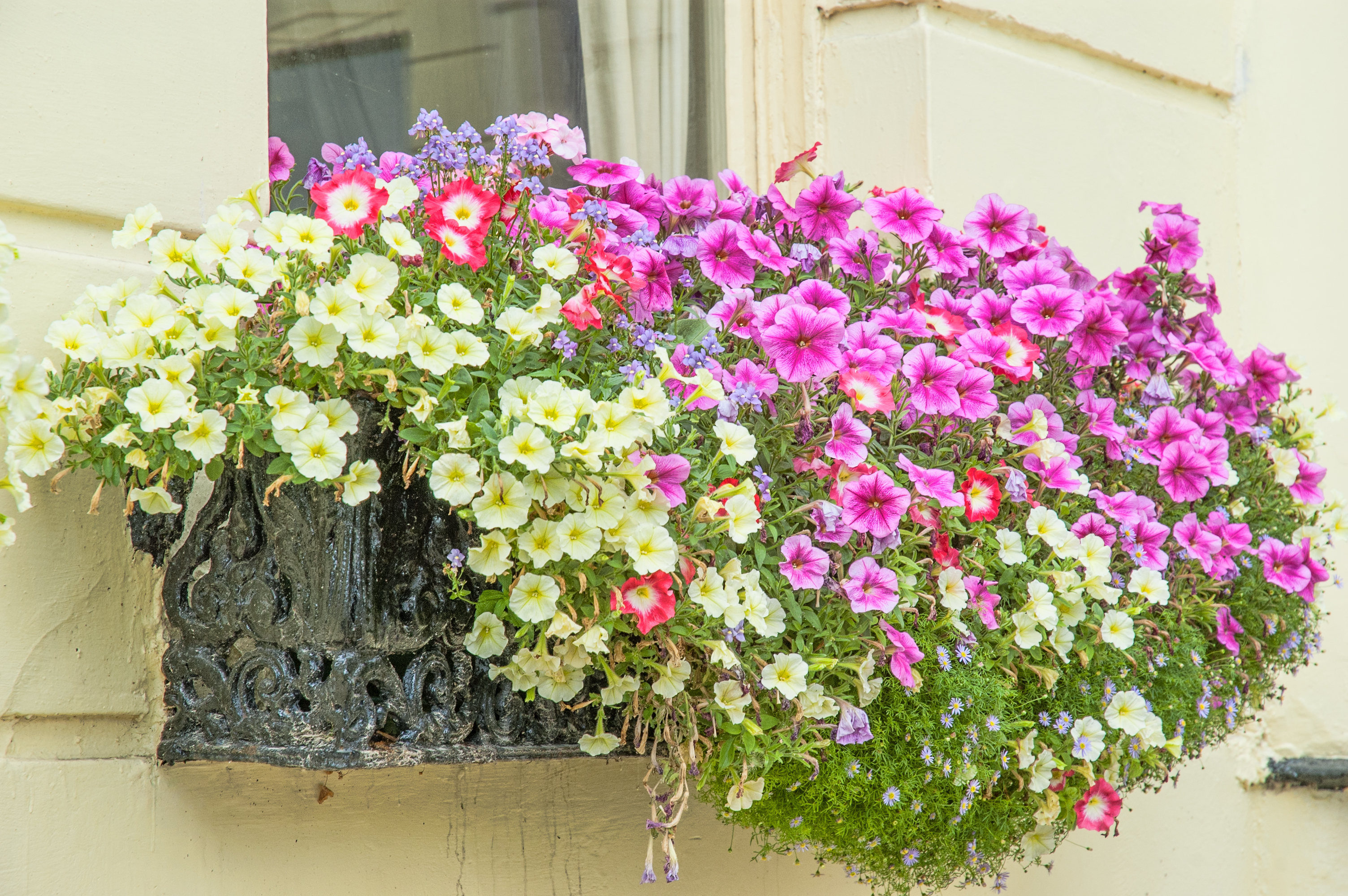
Laura tells us: 'When it comes to planting in window boxes, several common mistakes can hinder the health and aesthetics of the plants — this includes:
Inadequate drainage in containers: 'Many window boxes lack proper drainage holes, leading to waterlogged soil', which Laura says can 'cause root rot and other moisture-related diseases in plants. Therefore, it's crucial to ensure that your window boxes have sufficient drainage to let excess water escape'.
Underestimating the amount of water your blooms need. 'Window boxes dry out quickly because they are shallow, and often, they are placed under eaves where they do not receive natural rainfall. Regular watering is essential, sometimes even twice a day in hot weather, to keep the soil evenly moist,' the gardening expert says.
Adding too many plants can look messy. Laura tells us: 'Achieving a lush, full look as seen in magazine spreads or on Pinterest often requires more plants than anticipated. People frequently underestimate the number of plants needed to fill a window box adequately, leading to sparse and unattractive arrangements'.
Sunlight matters more than you realise and Laura says a common mistake many people make is assuming 'that window boxes will receive the same amount of sunlight as the rest of the yard. The actual lighting conditions can be quite different, especially if the box is placed under an overhang or on a side of the house that receives less light. Understanding the specific light conditions your window box will experience is vital for choosing the right plants that will thrive in that environment'.
Using the wrong soil type: 'Regular potting soil can dry out quickly in the confined space of a window box. Using moisture-control soil, which contains water-retaining pellets that release moisture as needed, can help maintain the ideal moisture level, ensuring healthier plants and less frequent watering,' Laura adds.
It's not a big no-no to add these blooms into window boxes, but if you want the best out of your blooms, be sure to choose the right flowers for window boxes to receive the best outcome.







